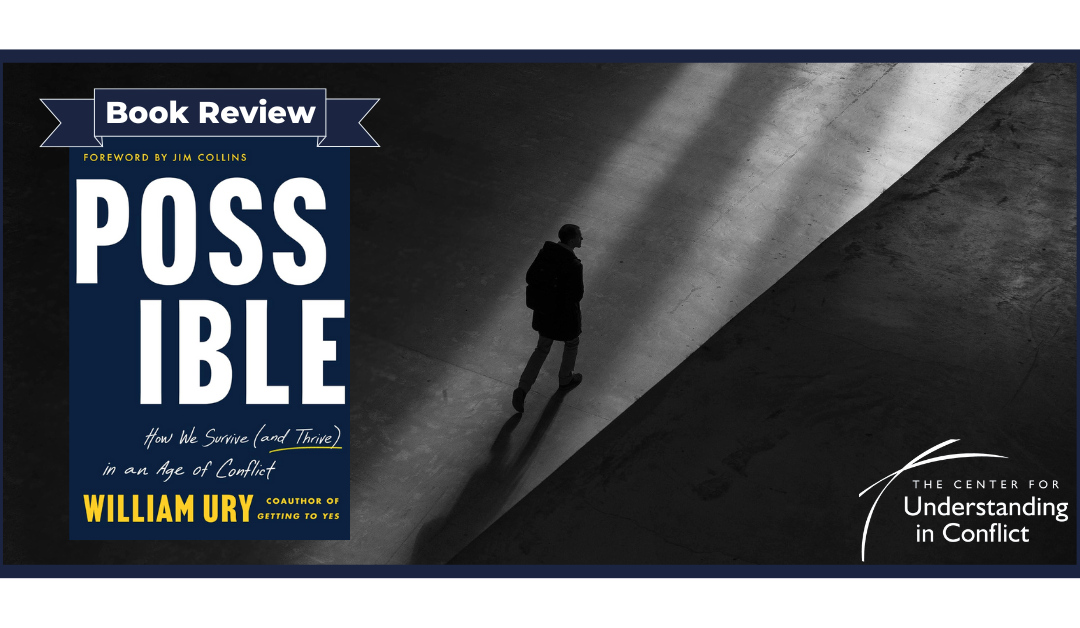In an era plagued by conflict, uncertainty, and polarization, William Ury’s book, Possible: How We Survive (and Thrive) in an Age of Conflict, emerges as a beacon of hope and a roadmap for conflict resolution and mediation practitioners. Ury, a seasoned mediator and co-founder of Harvard’s Program on Negotiation, brings a unique blend of experience and wisdom. His book is not just a collection of theories but a synthesis of his life’s work, offering a comprehensive framework for navigating conflicts of all scales, from interpersonal disputes to international crises.
One of the book’s most compelling aspects is its practicality. Ury argues that even amid seemingly intractable conflicts, a realm of possibility exists—a space where creative solutions can emerge and adversaries can find common ground. Drawing on numerous real-life examples, he demonstrates how reframing conflicts as opportunities for collaboration and mutual benefit can pave the way for constructive outcomes.
Central to Ury’s approach is the concept of “the third side”—the idea that a broader community or common interest always transcends the interests of the conflicting parties. By rallying support from this third side and fostering a sense of shared identity and purpose, mediators can exert a powerful influence on the resolution process. He also delves into the importance of empathy and understanding in conflict resolution, emphasizing the need for mediators to cultivate a genuine curiosity about the perspectives and motivations of all parties involved, even those with whom they vehemently disagree. By listening deeply and seeking to understand the underlying needs and interests driving each side, mediators can uncover hidden opportunities for collaboration and compromise.
The author stresses the importance of managing emotions in conflict situations, acknowledges the role that fear, anger, and distrust play in perpetuating conflicts, and offers practical strategies for de-escalating tensions and fostering a climate of mutual respect and trust. From establishing ground rules for communication to employing active listening techniques, his insights provide valuable tools for mediators seeking to create a conducive environment for dialogue and negotiation.
One of the book’s most illuminating chapters explores the concept of “ripeness” in conflict resolution. Drawing on the work of scholar John Burton, Ury argues that conflicts often go through distinct stages of escalation and de-escalation, with ripe moments emerging when both parties are sufficiently motivated and ready to engage in meaningful dialogue. Recognizing these ripe moments and capitalizing on them can significantly increase the likelihood of a successful resolution.
Throughout the book, Ury underscores the importance of perseverance and resilience in adversity. He acknowledges that the path to resolution is rarely straightforward and often fraught with setbacks and obstacles. However, he urges mediators to maintain sight of the ultimate goal and to remain steadfast in their commitment to finding constructive solutions.
Through a rich blend of theory, practical insights, and real-world examples, Possible: How We Survive (and Thrive) in an Age of Conflict offers a compelling vision of a world where conflicts are not merely endured but transformed into opportunities for growth and collaboration. This book serves as both a source of inspiration and a practical guide, equipping conflict resolution practitioners with the tools and perspectives needed to navigate the complex terrain of conflict with skill and compassion.
